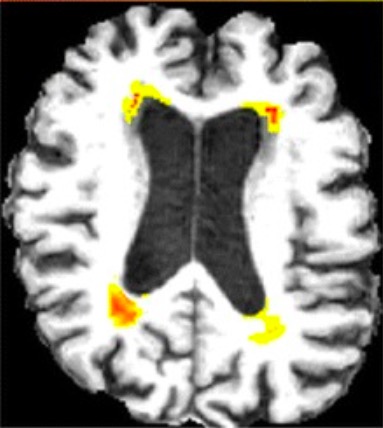Playlist
Show Playlist
Hide Playlist
Hydrocephalus: Etiology and Examination
-
Slides Hydrocephalus Special Surgery.pdf
-
Download Lecture Overview
00:01 Thanks for joining me on this discussion of hydrocephalus in the section of neurosurgery. 00:07 Let’s start by asking you a question. 00:09 What are the causes of hydrocephalus? I’ll give you a second to think about this. 00:16 Hydrocephalus is caused by anything that increases the volume of the CSF. 00:21 You may recall from our discussion in the trauma series about the Monro-Kellie doctrine. 00:26 Remember, the skull is a fixed space containing CSF, brain and blood. 00:33 This is a little different than traumatic brain injury patients because CSF and hydrocephalus develops over time. 00:40 And as a result, there's some compensatory mechanisms in play, so that the patient does not herniate, like a traumatic brain patient. 00:49 Now, let's review the normal drainage of the CSF. 00:52 As you know, CSF is produced in the choroid plexus. 00:56 It then travels to the lateral ventricle, third ventricles, fourth ventricles and eventually dumps into the subarachnoid space. 01:06 Any obstruction along this pathway can cause CSF hydrocephalus. 01:14 What are some physical findings of hydrocephalus? Commonly, cognitive deterioration. 01:20 This may be subtle. 01:21 It may not be a comatose patient, somebody who's got increasing confusion. 01:26 It may, particularly in elderly patient, present as suspicion for dementia. 01:33 Maybe the patient has some vomiting. 01:36 And frequently patients discuss nuchal rigidity and neck pain. 01:40 Sometimes, patients are suspected of having meningitis in these situations. 01:47 Frequently, patients also present with imbalance and gait disturbances. 01:55 Let's discuss normal pressure hydrocephalus. 01:59 Normal pressure hydrocephalus is very high yield and it's got a classic association syndrome. 02:05 That includes gait disturbances, dementia, urinary incontinence. 02:12 In general, normal pressure hydrocephalus – in other words, it doesn't increase intracranial pressures – are communicating in nature. 02:20 It's usually due to a decreased absorption as opposed to an obstructing hydrocephalus. 02:26 And as we discussed previously, they tend to be chronic and slow.
About the Lecture
The lecture Hydrocephalus: Etiology and Examination by Kevin Pei, MD is from the course Special Surgery.
Included Quiz Questions
Which of the following details the correct sequence of CSF drainage?
- Choroid plexus, lateral ventricle, 3rd ventricle, 4th ventricle
- Choroid plexus, 3rd ventricle, lateral ventricle, 4th ventricle
- Choroid plexus, lateral ventricle, 4th ventricle, 3rd ventricle
- Choroid plexus, lateral ventricle, 4th ventricle, sub-arachnoid space
- Choroid plexus, 4th ventricle, 3rd ventricle, lateral ventricle
Which of the following is a symptom of hydrocephalus?
- Urinary incontinence
- Excessive sleepiness
- Seizures
- Contralateral loss of pain and temperature sensations
- Saddle numbness
Customer reviews
5,0 of 5 stars
| 5 Stars |
|
5 |
| 4 Stars |
|
0 |
| 3 Stars |
|
0 |
| 2 Stars |
|
0 |
| 1 Star |
|
0 |





